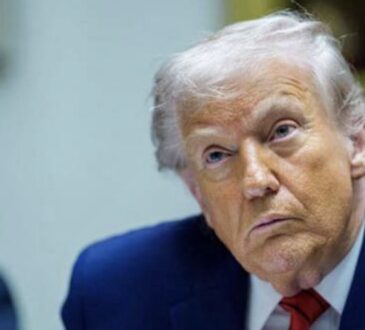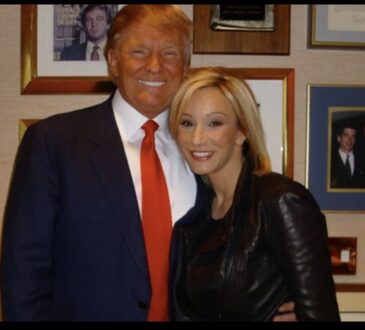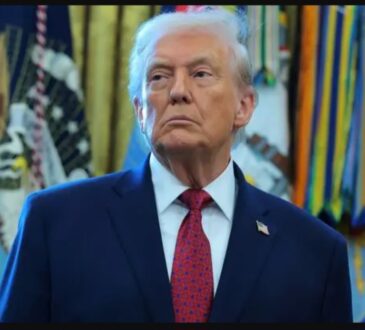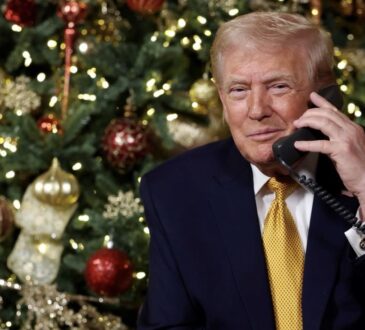Jasmine Crockett: Trump Supporters Tried to Assassinate President, Violence Doesn’t Come From Democrats

Congresswoman Jasmine Crockett from Texas recently made some strong claims during an interview with comedian Hasan Minhaj. She argued that political violence in the U.S. mainly comes from people on the right, specifically supporters of former President Donald Trump, and not from Democrats.
In the conversation, Minhaj brought up the idea that some Republicans may have avoided taking serious action against Trump—like impeachment—because they feared backlash or even violence from Trump’s base. Crockett agreed and went even further, saying that it’s mostly Trump supporters, particularly those who identify with the MAGA movement, who are responsible for recent violent political acts.
She acknowledged that anyone, regardless of political belief, can commit a crime, but she insisted that the majority of political violence comes from what she called the “MAGA faction” of the Republican Party. She made it clear she wasn’t blaming all Republicans, saying traditional conservatives weren’t typically involved. However, she claimed that the people involved in two recent assassination attempts against the President were MAGA supporters.
This is where her comments stirred controversy. Crockett didn’t offer clear evidence to support her statement, and critics quickly pointed out that the attackers she referred to may not have actually been MAGA supporters. One of the men, Thomas Matthew Crooks, attempted to assassinate Trump during a speech in Butler, Pennsylvania. He had reportedly registered as a Republican years earlier, but law enforcement reports later revealed he was mentally unstable and had a fascination with historical assassinations. His actions appeared to be more about personal obsession and mental illness than political loyalty to Trump or any organized movement.
The second person Crockett mentioned was Ryan Wesley Routh, who tried to assassinate Trump a few months later. Routh’s motives seemed to be related to his support for Ukraine, and he allegedly believed that harming Trump would help Ukraine’s war effort. There was no strong link between him and any right-wing ideology or MAGA beliefs. In both cases, experts and investigators did not confirm any deep political ties to Trump or conservative movements.
On top of that, on the same day Crockett made her claims, another man was arrested for threatening to kill Trump, former Florida Attorney General Pam Bondi, and Stephen Miller, a former White House official. This suspect also had no confirmed connection to the MAGA movement.
Critics say Crockett’s statements are not only inaccurate but irresponsible. They argue that political violence has come from both ends of the political spectrum and that her comments unfairly paint all Trump supporters as dangerous. Some also point out that just days before her interview, an anti-ICE protest in her home state of Texas turned violent. In that case, the suspects were left-wing activists who reportedly planned to ambush and possibly kill federal agents. Despite that, Crockett insisted that Democrats don’t commit violent acts.
Some political commentators believe that Crockett’s remarks are part of a larger trend where both sides of the political aisle are quick to blame the other for violence, rather than acknowledging the complexity of the issue. They argue that instead of helping calm tensions or promote unity, such statements only make the political divide in the country worse. Crockett’s critics say that by ignoring violence from her own side and exaggerating claims against Trump supporters, she is contributing to misinformation and fueling anger rather than addressing the root causes of political violence.
The article’s author, who comes from a conservative viewpoint, believes Crockett is oversimplifying a serious issue for political gain. He accuses her of “gaslighting” the public—trying to make people believe something that isn’t fully backed by facts. He also criticizes her for relying on emotional arguments instead of solid evidence. In his view, Democrats like Crockett are not only distorting the truth but also lowering the overall quality of political conversation in the U.S. He argues that comments like hers are part of why the political climate remains toxic and divided.
The piece ends with a passionate call to action from the author, urging readers to stand up against what he sees as a dishonest narrative from the left. He believes conservative voices need to keep pushing back, defending Trump’s record, and telling what they view as the real truth.




